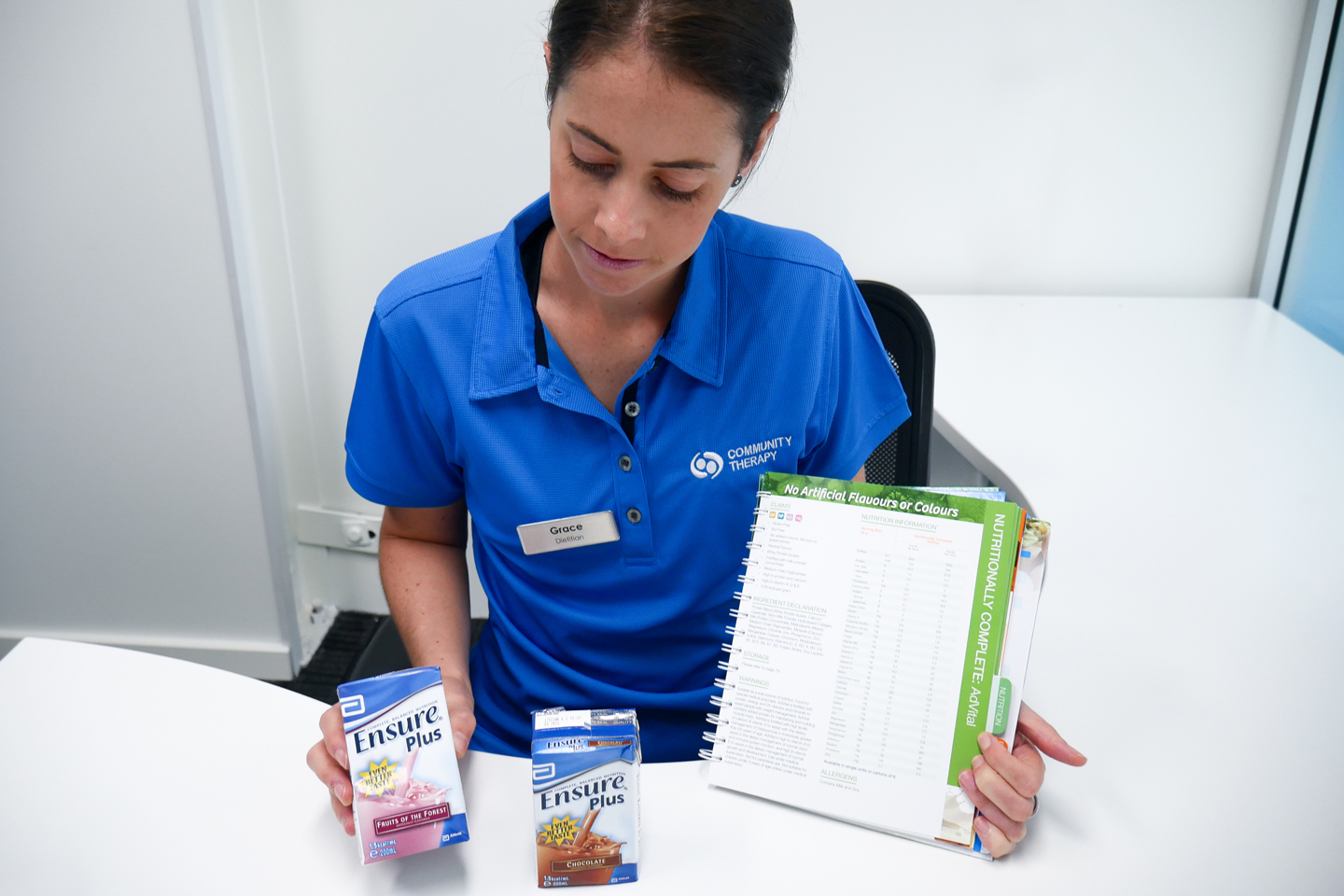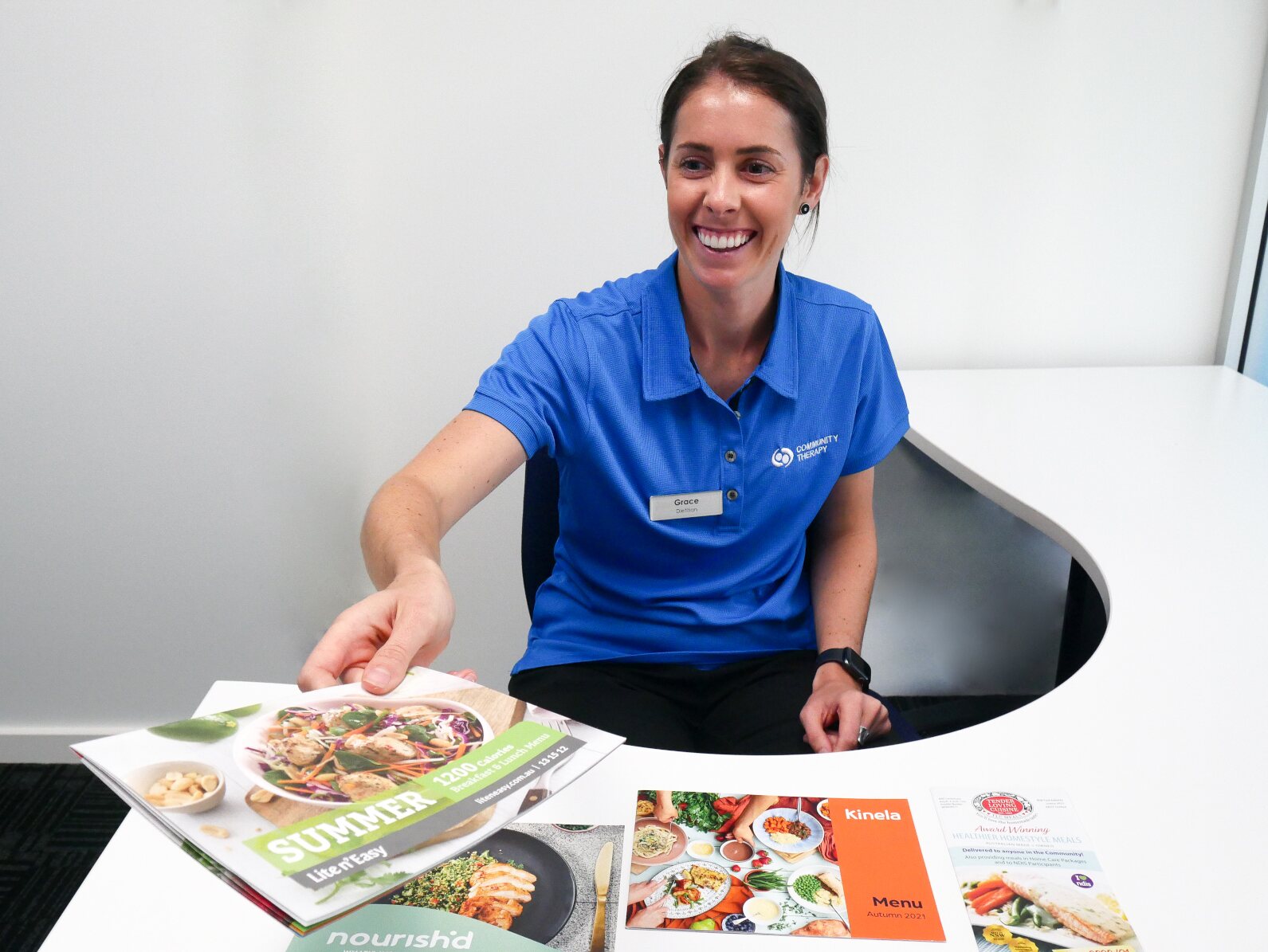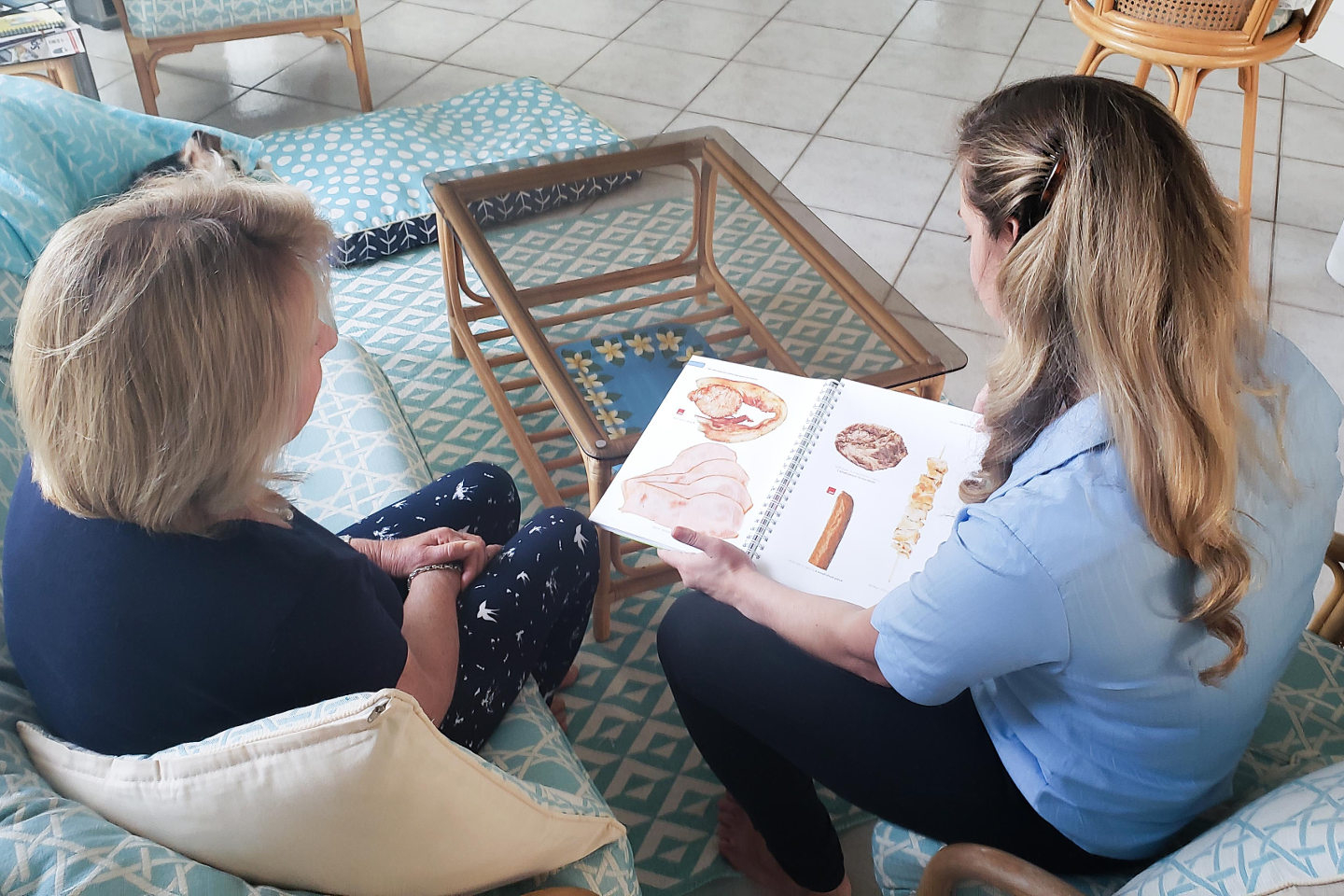Meal Delivery Services
Meal delivery services are when a company provides ready-made meals to people at their home.
Meal delivery services can be optimised by engaging a Dietitian to help the recipient choose meals that align with their goals and medical conditions.
Many people may not have considered a meal delivery service before, but there are many people for whom they can be a wonderful option.
Meal delivery services can be a good way to ensure someone is getting adequate nutrition. They can also be a good way to support someone who has physical difficulties in preparing their own meals.
Our Dietitians do not prescribe any particular meal delivery service; our role involves ensuring that the client knows what their options are and optimising them appropriately for their nutritional needs and preferences.

Who Can Access Meal Delivery Services?
Anyone can receive a meal service.
The government has initiated subsidies to support the reduction of malnutrition in the community. Subsidies and discounts may be available to those who are home care package recipients, seniors & NDIS participants.
In some instances, meal delivery services can be subsidised by up to 70% of the total cost. This would depend upon the individual’s circumstances and their individual support package.
In order to receive a subsidy, the client’s NDIS Package or Home Care Package needs to have been set up to include a meal delivery service. Eligibility varies from one individual to the next and should be discussed with the client’s coordinator.
Please contact Community Therapy if you have any questions.

Creating an Ideal Meal Plan
Dietitians at Community Therapy can help not just with information but also with the logistics of coordinating meal delivery services.
This may include assistance with coordinating an appropriate service to suit situations such as:
- Malnutrition
- Allergies
- Intolerances
- Texture requirements
For clients living in a retirement village or apartment, delivery logistics may also need to be managed. For example, if someone cannot carry their meal orders from the delivery point to their residence, special arrangements may need to be made.
At Community Therapy our experienced staff can help with these kinds of details.

Working with a Dietitian to Choose Great Meals
We can work with clients to establish how to optimise their nutritional intake. This would give consideration to what foods or nutrients they need more of, as well as what they may need to avoid.
For example, if someone has a nutritional deficit or a dairy intolerance, we can ensure that they are getting what they need across a carefully designed combination of delivered meals and additional recommended items.
In all cases, we respect patient decisions and advocate for choice and control.

How Many Meals Per Day?
The amount of meals per day can be tailored to suit the individual.
As such, a client’s preferences may be that all meals (breakfast, lunch, dinner, snacks) are catered for.
For others, they may indicate a preference to only have dinner catered for because they enjoy cooking at other times.
We work with each client so that together we can find a solution.

Reviewing Meals
A Dietitian can carry out an assessment and develop an individualised plan. This will take into account:
- A Nutritional Care Assessment
- Current weight, height and BMI
- Current illnesses and medications
- Food restrictions such as intolerances or allergies
- Meal delivery options, if appropriate
This assessment will enable the Dietitian to calculate whether or not someone’s diet is meeting their requirements and what the risk factors might be of not meeting them.

Start a Meal Delivery Service with the Support of Community Therapy
Contact us or phone us on 1300 031 935. Our team is ready to answer questions about our services, availability or pricing.
We are a large Allied health team and can provide support in a number of ways. Our Dietitians often work hand in hand with our Speech Pathologists, Occupational Therapists and Physiotherapists to support all of our clients care needs.
At Community Therapy, we are experienced in disability and aged care, and we work with a holistic, multidisciplinary approach to achieve the best outcomes we can for all our clients.

Meal Delivery Service FAQ
-
Will my meals be delivered fresh or frozen?
This varies from one provider to another, so it will depend upon the individual company being used.
-
Am I locked into any contract, either with Community Therapy or with a meal delivery service?
No. Most companies no longer require a lock-in contract.
This is a very positive change across the industry because it provides customers with the chance to try multiple companies and find the right fit for them.
It also means customers can typically make changes to the way they order with relatively little effort or stress. This makes it easier to find a good fit.
-
Does Community Therapy recommend particular providers?
No.
Community Therapy does not have any preferences between companies. Our role is to provide information to clients about what is available.
We support and educate people so that they can make an informed decision about what will best meet their needs.
Our Dietitians have knowledge of what different companies provide. This includes information about which services may best suit someone who is managing food allergies, or who requires a texture modified diet.
We often liaise with a client’s NDIS or Home Care Package Coordinator in order to determine whether a meal delivery service is compatible with their NDIS Package.
-
How do people respond when they first start with a meal delivery service?
We all have individualised preferences relating to the texture, flavour and presentation of our food.
For this reason, we definitely encourage people to try before they make an ongoing decision.
This gives people the opportunity to see the quality of the meals.
People are often surprised at the quality because they don’t realise that many providers now employ Dietitians and chefs to ensure what they are offering is both nourishing and enjoyable.
-
How does a Dietitian optimise nutrition for someone with a physical or neurological disability?
A Dietitian will take into account the individual’s circumstances and disability.
For example, an NDIS Participant who has dysphagia may be losing weight because they (or their carer) are struggling to create nutritious meals that are an appropriate texture.
In a case such as this, a meal delivery service may be an appropriate solution.
There can be a lot of work involved in blending or thickening ingredients and creating meals that taste good and are appetising.
Having a meal service to lighten that load, even just for one meal per day can be very beneficial.
A Dietitian will examine ways to help the client to initially stop losing weight, and then ways to regain weight too.
These interventions can sometimes be critical to survival, depending upon the client’s individual circumstances.

